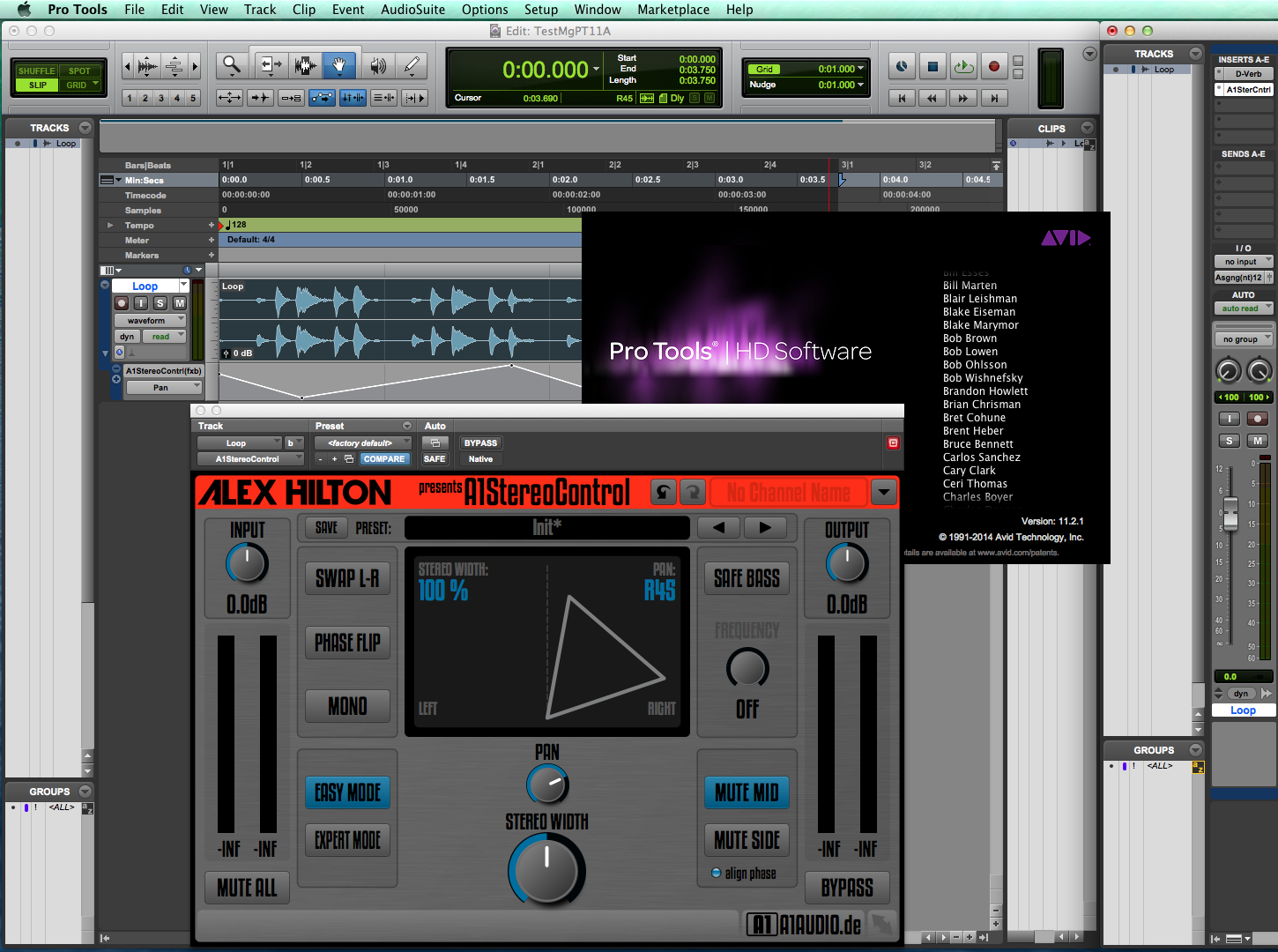

More Rtas Vocoder Pro Tools videos. More Rtas Vocoder Pro Tools images.
Pro Tools Effects, Plug-in Converter. Free plug-ins that work directly with Pro Tools. A month away from releasing a VST-to-RTAS converter for Pro Tools. Real-Time AudioSuite (RTAS) is a format of audio plug-in developed by Digidesign, currently Avid Technology for their Pro Tools LE and Pro Tools M-Powered systems.
VST plug-ins running in Pro Tools, thanks to FXpansion's adaptor. As the name suggests, FXpansion's utility allows VST effects and Instruments to be used in Pro Tools, but how well does it really work? Both Pro Tools LE and TDM systems use Digidesign's proprietary RTAS (Real-Time Audiosuite) format for host-based plug-ins. While this supposedly keeps Pro Tools ' mixing environment within Digidesign's sphere of influence, it has limited the range of virtual effects and instruments available to Pro Tools users. The situation has been improved by Rewire support, as well as Native Instruments' adoption of RTAS, but there is still a great number of VST-format plug-ins (many free) that we've missed out on. It seems quite hard to believe, but FXpansion's VST To RTAS Adapter can take VST effect and Instrument plug-ins and alter them so that they work as RTAS versions.
(They also have a VST To Audio Units Adapter, for OS X users of Logic who want to incorporate VST plug-ins.) What FXpansion's adaptor does is 'wrap' the plug-ins in an extra layer of code that mediates between Pro Tools and the plug-in, making the plug-in appear to Pro Tools as if it was in the RTAS format. This 'wrapping' takes place off-line, using a configuration application, and once it's complete, FXpansion claim that the adaptor code uses next to no CPU power, so the plug-ins should be nearly as efficient as in a native VST host like Cubase. No extra background programs have to be running when you use the converted plug-ins — they just appear in Pro Tools alongside your existing effects. VST plug-ins are converted prior to use with the Configuration Utility.Installation creates a folder containing the VstRtasConfigure utility and a local VST plug-ins folder. The Configure application scans your computer for VST plug-ins, creates the 'wrapped' versions and places these in your Pro Tools Plug-ins folder. Even with a large number of plug-ins this only takes a few seconds. After this, you only need to use the utility when you add new plug-ins, or wish to remove them all.
The important option in VstRtasConfigure is the 'Scan only local VST plug-ins' toggle. Game Tomb Raider Underworld 3d. While the utility can scan your whole computer and convert any VST plug-ins it finds, it's highly recommended that you copy the ones you wish to use into the local folder. The best method is to convert in small batches rather than all at once. The reason for this is that some plug-ins are not going to work, and introducing a small number at a time makes it much easier to weed out problematic ones.
After the configuration program has finished, all that remains is to quit it and launch Pro Tools. Torrent Adobe Elearning Suite 6.1 here. Converted plug-ins appear in the normal RTAS plug-in list, available at insert points in audio tracks, and also aux inputs on LE systems. Adapted plug-ins are to easy to differentiate from the others as their names appear with the prefix 'VSTW', which tends to clump them at the bottom of the list. Pick a plug-in, and hold your breath.
With any luck the plug-in will pop up looking for all the world like it's perfectly at home in Pro Tools. As well as having full use of Pro Tools ' standard Save and Load preset functionality, the VST preset system is available at the bottom of the plug-in window. Automation is also implemented.
Now you're probably thinking there must be a catch with all this, right? Well, that depends on your expectations. There is a certain amount of uncertainty in using the adaptor (as you might expect), which means that you need to approach it with a willingness to get your hands dirty, and without expecting it to work with everything. There are certain technical differences between the RTAS and VST formats that are hard to reconcile, such as RTAS's lack of support for multiple outputs from a virtual instrument. Also, the huge range of possible system configurations and plug-ins makes testing difficult, especially for a relatively small independent software house like FXpansion.
Taking all this into account, I set aside some time to install a range of effects and instruments, a few at a time, and get a feel for what can be expected. I downloaded around 40 free and demo plug-ins to add to my own. You can see a summary of my results in the 'Tested Plug-ins' box below. Adapted plug-ins appear in the standard plug-in list with the prefix 'VSTW'.To begin with I was using an Apple iBook 800, running OS 10.2.8 with Pro Tools 6.1 and a Digidesign M Box, and had about a 50 percent success rate. This, I later learned, was an unusually poor result caused mainly by my Mac. Even so, many VST Instruments worked fine, including some large and demanding ones such as Gmedia's Oddity and ImpOSCar. Internal MIDI functionality worked fine, with the plug-in instruments automatically seen as destinations in MIDI tracks.